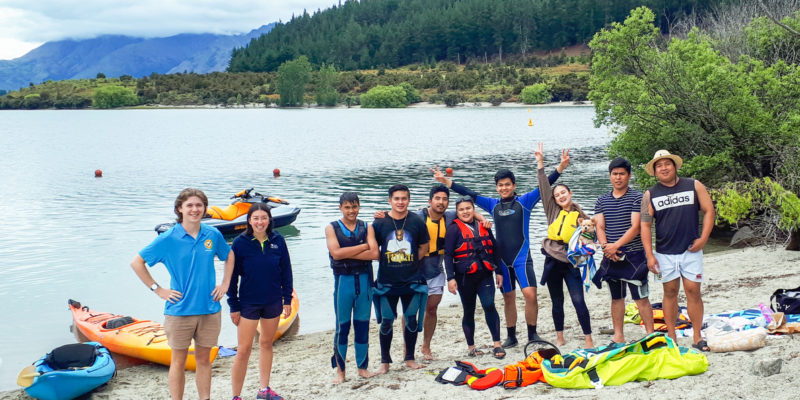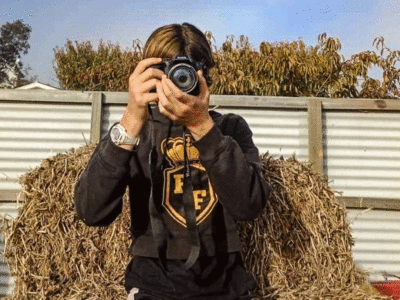Two new Otago Regional Council (ORC) advocates will be keeping lake weeds front of mind for boaties and other water users around popular freshwater recreation areas in Central Otago this Summer.
ORC’s Central Biosecurity Team has welcomed 22-year-old Jimmy Matangi and 20-year-old Zac Holt to help spread the word about pests in our water.
Until early February, Jimmy and Zac will be at a variety of spots across Otago’s lakes and rivers to survey visitors on their awareness around invasive freshwater pests such as lagarosiphon and didymo, and to let them know what they can do to stop their spread.
ORC Biosecurity Officer Central Otago Mandy Dalziel said the face-to-face engagement is an important part of getting everyone to protect waterways from invasive pests.
“Aquatic pests like didymo can spread very easily between waterways on people’s equipment and vessels, but a few simple steps by boaties and other visitors helps to minimise that risk.
“Every year, our advocates talk to freshwater users, educate them and gather data on their knowledge of freshwater pests and the Check Clean Dry method,” she said.
“The survey data tells us a lot about high-risk users, where to find them and what we can do to keep them better informed.
“Last year ORC collected the most surveys nationally at 848, an outstanding result from the team considering the lack of international tourism our region usually sees,” said Mandy.
Zac, born and raised in Dunedin, says he spent a lot of time around Central Otago growing up. He has finished his third year at the University of Otago, studying towards a Bachelor of Laws and a Bachelor of Science with a major in Geography and a minor in Environmental Management.
Jimmy, from Levin, has spent the last four years in Dunedin studying a Bachelor of Laws and Arts majoring in Geography with a minor in Environment and Society. She said that both she and Zac love the outdoors, including swimming, tramping, mountain biking and boating.
“We are both very passionate about conservation and are really excited to be promoting the Check, Clean, Dry programme this summer. If you see us out and about, feel free to come over and have a yarn – we’ll be keen for a chat.”
As well as talking to holiday makers, the Check Clean Dry advocates will be at key events to demonstrate the important message to help protect our waterways; to always check, clean, then dry any equipment that comes into contact with the water, between every waterway, every time.
Check, Clean, Dry is the Ministry for Primary Industries’ method for preventing didymo and other aquatic pests:
Check – Remove any plant matter from your gear and leave it at the site (the river or lake bank) or put it in the rubbish. Don’t wash plant material down any drain.
Clean – There’s more than one option for cleaning your gear – choose the one that’s best for your situation and your gear.
Dry – Ensure your gear is completely dry to touch, inside and out, then leave dry for at least another 48 hours before you use it (didymo can survive for months on moist gear).
“The biggest risk to Otago waterways is the further spread of lagarosiphon, didymo and lake snow,” said Mandy. “Freshwater pests, specifically lagarosiphon, could squeeze the life out of our country’s most precious rivers and lakes. What’s scary is that they can be spread by a single drop of water or plant fragment!”
Last year’s survey results showed an increase in awareness about these pests from previous years. There was also an increase in people saying they ‘always’ follow the check, clean, dry best practice.
“It’s great to see the community are getting on board and doing their bit to protect our waterways. We really appreciate their involvement.”
The Check, Clean, Dry campaign originated to tackle the spread of didymo, but is now relevant for all freshwater pests.
To find out more about these aquatic pests and others in Otago you can visit the ORC’s Pest Hub at www.orc.govt.nz/pesthub











